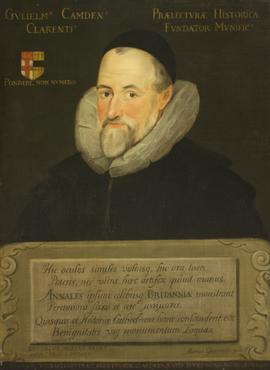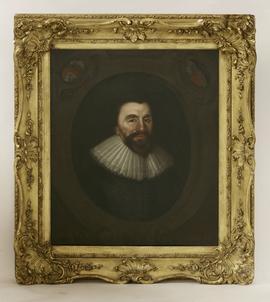- GB-2014-WSA-00364
- Person
- 1723-1792
BURGOYNE, JOHN, second son of Capt. John Burgoyne, Sherborne, Warwicks., and Anna Maria, dau. of Charles Burneston, Hackney, Middlesex; b. 4 Feb 1722/3; in school lists 1733, 1735-8; an intimate friend of James Smith Stanley, Lord Strange (qv); Cornet, 1st Royal Dragoons, 14 Jul 1743; Lieut., 22 Feb 1745; Capt., 1 Jul 1745; sold out 31 Oct 1751, on account of his debts, and resided for some years in France and Italy; re-entered Army as Capt., 11th Dragoons, 14 Jun 1756; Capt. -Lieut. and Lieut. -Col., 2nd Foot Guards, 10 May 1758; served in expeditions to Cherbourg and St. Malo 1758-9; raised 16th Dragoons and gazetted as Lieut. -Col. commandant, 4 Aug 1759; served in Portugal as Brig. -Gen., 1762; Brevet Col., 8 Oct 1762; Col. 16th Dragoons, 18 Mar 1763 - Oct 1779; Governor of Fort William 1769-79; Maj. -Gen., 25 May 1772; served in America 1775; present at battle of Bunker Hill; second in command under Sir Guy Carleton in Canada, 1776, in supreme command 1777; Lieut. -Gen., 29 Aug 1777; surrendered to Gates at Saratoga, 17 Oct 1777; allowed by Washington to return to England on parole, where he resigned his regiment and governorship; on the return of his political friends to power in 1782 became Commander-in-Chief, Ireland, 7 Jun 1782, holding post to 1784; Col., 4th Foot, from 7 Jun 1782; MP Midhurst 1761-8, Preston from 29 Nov 1768; proposed in 1772 that the East India Company should be controlled by the government; made a violent attack on Clive in May 1773, and was a manager of the impeachment of Warren Hastings, 1787; Privy Councillor (I) 4 May 1782; member, Society of Dilettanti, 1772; contributed to the Rolliad and Probationary Odes; author, The Heiress, 1786, and other plays; m. 1743 Lady Charlotte Stanley, sister of James Smith Stanley, Lord Strange (qv); d. 4 Aug 1792; buried North Cloister, Westminster Abbey. DNB.


